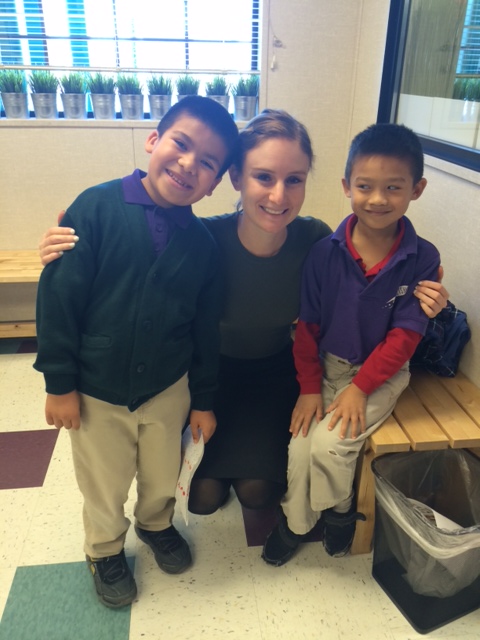
Looking Inward, Moving Upward
by Gabriela Netter, Assistant Principal, Spark Academy
“Wow, you’re like a therapist!” one of the teachers I coach joked during one of our weekly one-to-one meetings.
“All part of the AP job description…” I joked back (a phrase which perhaps does not apply to clever retort generation).
I also smiled to myself. I’d thought the same thing about my own coach earlier that day.
Our work as teachers and leaders is extremely personal. We pour every ounce of ourselves into our work — our hopes, our frustrations, our love, our personalities, our time. Our students greet us with metaphorical mirrors, shooting back whatever excitement, energy level, vulnerability and thoughtfulness we are able to offer them. Our mindsets, then, become paramount. Even as they drive our tiniest actions, they impact our students in unimaginably huge ways. We think Esperanza Rising is the best book ever written? So will they. We think shaking hands, looking someone in the eye and asking how he’s doing is important? So will they. We come to school tired and less than our best? Of course, so will they.
Each day we come to work striving to offer our students the absolute best. Nothing is more important in this endeavor than the way we approach our work. This requires us to take on two types of reflection, one more pleasant than the other.
In the first, we name and harness our productive mindsets. “I am confident in my planning – how can I leverage this to make my execution even stronger?” “I believe in consistency – how can I take the consistency I’ve helped build between literacy and math and spread it to PE? To lunch?”
This is the fun kind of reflection. The kind where we feel (rightfully!) good about ourselves and our ability to positively impact our students.
But then there’s the second kind of reflection. That’s the kind where we have to face and challenge our unproductive mindsets, where we must dig deep below the surface to identify what makes a particular situation challenging or unsatisfying. This is where we go beyond “I didn’t meet a deadline” to “I didn’t meet a deadline because I was afraid of the negative feedback I might receive;” beyond “that student gets on my nerves,” to “I feel helpless with that student because I don’t know how to connect with her well enough to invest her.”
This is where we confront our very human, but very unhelpful excuse making, blame and projection, and begin to change ourselves, recognizing that, as my coach once told me, “Where knowledge stops, frustration begins.” And this…this is where our success is unleashed.
We owe it to our students to constantly engage in both kinds of reflection. This work, of course, is not easy, and should be done through partnerships between teachers and students, coaches and teachers and coaches and their coaches.
Stopping and looking inward is a true challenge. But at Spark Academy, ask our students what they think about hard work, and they will immediately respond with “I love a challenge.” This is a mindset we’ve taught them. It’s a mindset that we deeply believe. What better way to apply it than to tackle our mindsets head on?
Gabi joined Rocketship as a TFA Corps Member after graduating from Yale in 2010, her head full of crazy notions of having an impact and closing the achievement gap. It turns out her dreams were not so crazy after all, and after joining Rocketship, she never looked back. In her free time, Gabi enjoys playing and watching soccer (dreaming of a US-Brazil World Cup final in 2018), hawking the superiority of Southern Californian Mexican food (two words: California Burrito), and forcing her friends to watch videos of Rocketeers singing Let it Go.
Published on March 16, 2015
Read more stories about: Teacher Experience.



